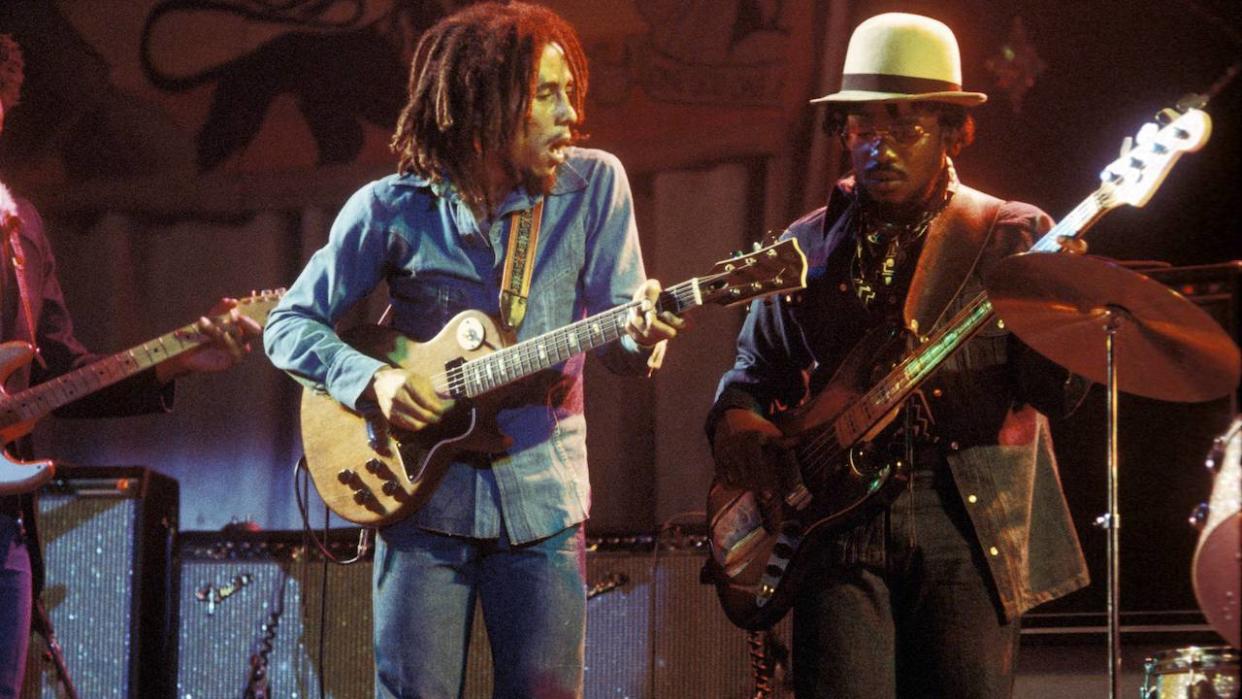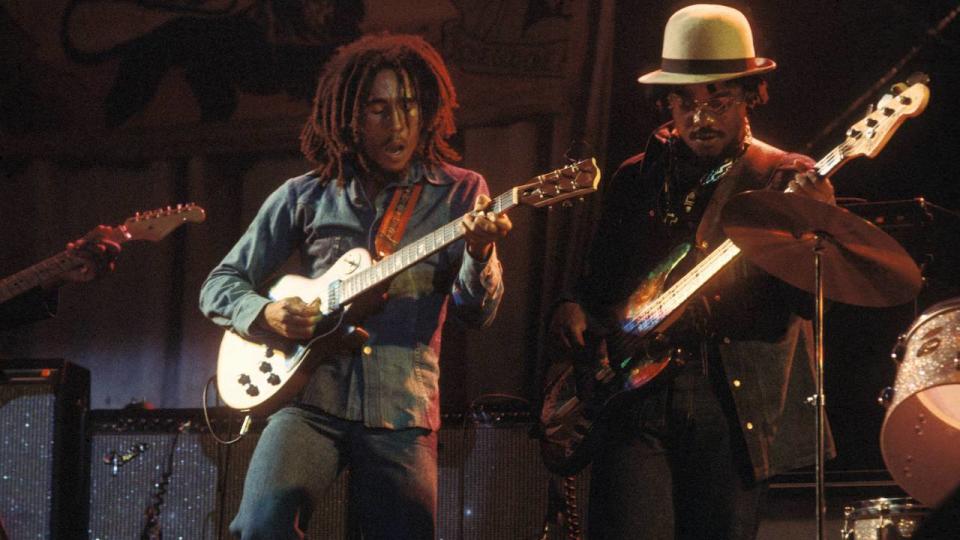10 reggae records that every bass fan should know

Released in April 1973, Catch A Fire catapulted Bob Marley and the Wailers to global stardom. The sub-hooks of bassist Aston ‘Family Man’ Barrett, together with his drumming brother Carly, played a primary role in introducing the sound of reggae’s one-drop rhythm to audiences around the world.
50 years later and the bass guitar still holds centre stage in Jamaican music, with a range of great Jamaican bass players each propagating a unique style. Knowing where to start can sometimes seem overwhelming, with some of the best work collected on compilation albums. Here are 10 classics to set you off.
1. The Melodians – Swing and Dine (1992)
One of the biggest selling groups on Duke Reid's Treasure Isle label, the Melodians excelled in both rock steady and reggae. Probably best known for Rivers Of Babylon, which was their Rastafari twist on psalm 137 1-4, this compilation CD on Heartbeat Records is a great source of their smooth mid-60s rock steady songs, complete with Jackie Jackson’s strolling basslines.
2. Ska Bonanza – The Studio One Ska Years (1991)
The Skatalites helped usher in a new age of Jamaican music in the early 1960s by mixing American R&B and funky rhythms with the island’s African-derived folk music. Another release on Heartbeat Records, this double album of Skatalites gems also includes early ‘60s work from Bob Marley. Lloyd Brevett and Clue J keep the acoustic upright bass driving the frantic ska beats.
3. Bob Marley and the Wailers – Soul Revolution I and II (1991)
A re-issue of two Bob Marley albums, Soul Revolution and Soul Revolution II. The first presents the Wailers, fronted by Bob Marley, Peter Tosh and Bunny Wailer, as Jamaica’s hardest ever vocal trio. The second set is purely instrumental, revealing the extreme tightness of producer Lee ‘Scratch’ Perry’s house band, The Upsetters, who would eventually form the core of The Wailers.
4. Keith Hudson and Friends – Pick a Dub (1974)
Keith Hudson was one of the most innovative singers and producers to emerge from the reggae scene. Arguably the crowning achievement of his career, Pick a Dub, is the perfect starting point for anyone wanting to learn some reggae basslines. Featuring Aston 'Family Man’s unwavering bass playing, the rhythm section is stripped down to the bare essentials.
5. The Upsetters – Super Ape (1976)
This is dub from the high point of Lee Perry’s famed Black Ark Studios, and features snatches of Max Romeo, Heptones, Prince Jazzbo and Perry himself, all held together by the bass playing of Boris Gardiner. Gardiner became a member of Lee Perry’s Upsetters following Carlton and Aston 'Family Man' Barrett’s defection to the Wailers. He subsequently became Perry’s bassist of choice for the rest of the '70s.
6. Augustus Pablo – King Tubbys Meets Rockers Uptown (1976)
A fine collaboration between two of instrumental reggae's leading lights: producer and melodica player Augustus Pablo and legendary dub pioneer King Tubby. This is dub as only King Tubby could mix it, with 'Family Man' and Robbie Shakespeare anchoring the rhythm section with weighty, expressive basslines.
7. Dennis Brown – Wolf and Leopards (1977)
Another important Jamaican bassist is Lloyd Parks, whose intricate approach caught the ear of adventurous producers like Lee Perry and Glen Brown. In the late 70s he became the resident bassist at Joe Gibb’s studio, where he played on countless hits for reggae singer Dennis Brown. Wolf And Leopards is Brown at his late-70s best with Lloyd Park’s original lines complimenting his every note.
8. Wailing Souls – Fire House Rock (1981)
Fire House Rock is centred on the intricate bass patterns of another of Jamaica’s outstanding bassmen, Flabba Holt. Holt’s style avoided rest stops, instead keeping things interesting with an emphasis on continual movement. “Songs they used to play had space,” said Holt. “I make sure to fill up them space there, leave no note open. I try to give it a different feel.”
9. Sly and Robbie – A Dub Experience (1984)
The only team to ever seriously rival Family Man and Carly were Jamaica’s rhythm twins, Sly Dunbar and the late Robbie Shakespeare. A Dub Experience represents the evolving sound of dub in the ‘80s, with crucial cuts of their best work with Black Uhuru, Dennis Brown and Junior Delgado. Dunbar drums like a metronome; Shakespeare’s bass is faultless throughout.
10. Bob Marley and the Wailers – Catch a Fire (1973)
Rich, textured and authentic, Catch a Fire is a holistic introduction to everything that’s great about Bob Marley. It’s packed with classic 'Family Man' basslines pounding with conviction and driving each track forwards. A 21-year old Robbie Shakespeare also features on the opening track, Concrete Jungle.

Catch A Fire is available to download through Amazon.

